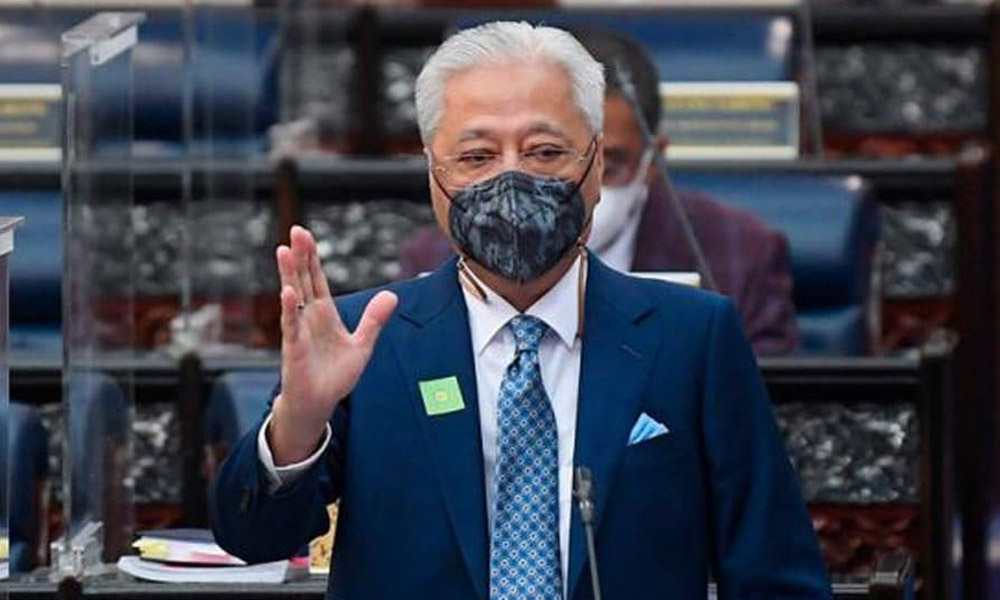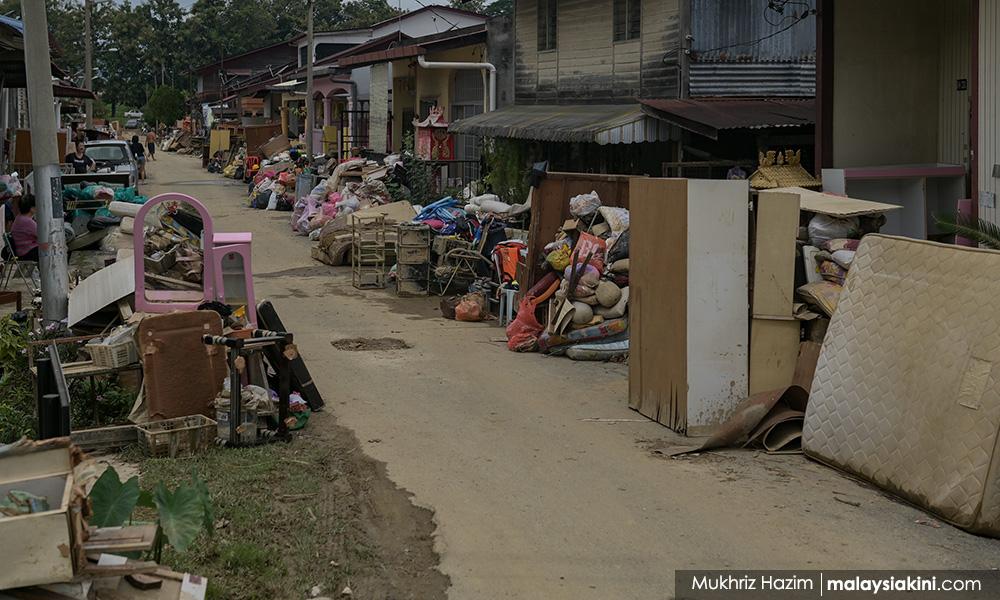Should a giant meteor flies through the sky, hits the ground with the energy of 10 billion atom bombs and wipe off much of the earth’s flora and fauna and almost all of mankind, it would not be within our control.
What about a natural disaster?
That’s talking about floods; which we also cannot prevent.
But we have the means and expertise to manage it; except that we seem not to be doing it properly due to poor coordination among the authorities that matter.
The pronoun "we" I’m referring to here includes the weather experts, the ecology exponents, the environmental specialists, the disaster management bodies and the political analysts who are always so clever to spot loopholes in the professionals’ point of view.
It also refers to the rest of us who are so apt at haphazardly dumping our household wastes and construction remains that we don’t really care where our rubbish ends up.
While Prime Minister Ismail Sabri Yaakob has humbled himself to admit there were weaknesses in flood management across the country, netizens launched a protest with the Do Not Donate To Government #hashtag; referring to a public fundraiser to help flood victims.
Nevertheless, in the light of the flood crises, he said a special Parliament meeting would be held later this month to discuss, among others, related matters, such as post-flood recovery, coordination of assistance to victims and long-term management planning.
In Parliament parlance, “discussion” usually means debate and “meeting” is confrontation.

So, we can expect a lot of heated moments with lawmakers of the same feather denouncing the government over its alleged lackadaisical attention to the flood victims’ sufferings and the government’s reciprocal rejoinder deriding the opposition’s supposedly ill-informed arguments.
The special session on Jan 20, despite the expected combative atmosphere, will hopefully clear two vital issues: first, the long-term measures to address flood situations; and second, who would rightly be eligible for government assistance to cover flood-related damages.
As most people are aware, the immediate impacts of flooding include loss of human life, damage to property, destruction of crops, loss of livestock and deterioration of health conditions.
Notwithstanding that, floods can be forecast, prepared for, engineered and insured against and managed.
After more than half a century of dealing with floods, we should be savvy about managing them when they come and have a plan of action ready for evacuation and distribution of food and medical aid to those requiring them immediately.
Yet, the recent and ongoing floods - while dubbed the worst the country had seen in more than 50 years - are deemed "unexpected" and have left us blaming everyone else except our own important selves.
This was probably due to its occurrence in Selangor and the Federal Territories of Kuala Lumpur and Putrajaya that it surrounds.
Large-scale damage
People from the east coast states of the peninsula go through the floods year in and year out and they are almost regimented as to what should be done when rivers overflow or tidal waves come to shore.
This was despite the people of Kelantan and Terengganu going through their worst flood experience from mid-December 2014 to early January 2015; which resulted in 21 deaths and more than 200,000 people displaced.
In Selangor and Kuala Lumpur, where the population density is highest in the country, prolonged flooding is not the norm.
This was also the situation in Penang when it suffered its worst floods ever in November 2017.
The rampaging floods in the Klang Valley, that came ahead of the Christmas merriment, shocked the large urbanite population who had felt it was safe to come out of their cosy homes just when the signs were showing that the Covid-19 pandemic was under control.

By the dawn of the New Year 2022, the waters have stretched far south to Johor and were carried by tidal waves across the South China Sea to Sabah and Sarawak.
In fact, almost the whole country had become a disaster zone, with large-scale damage to village and trunk roads, homes, farms, industrial plants and shopping malls.
According to media reports, at least 54 people died; mainly in Selangor, Pahang, Kelantan and Sabah. Many are still missing.
The floods overwhelmed the already fragile healthcare system, which was just recovering from the chaos brought about by the widespread occurrence of the coronavirus.
The stagnant waters in village and city streets have led to worries of outbreaks of waterborne diseases, such as cholera, and vector-borne diseases, like dengue, as they create the environment for breeding flies and mosquitoes.
The rescue ops were constantly hampered by a lack of boats and other vessels to navigate around high-density areas, exacerbated by coordination issues between authorities.
Evacuations prioritised those with young children and the elderly as well as people with chronic diseases who suffered from lack of food, running water, disrupted electricity supply and shortage of medication.
As of Jan 6, the National Disaster Management Agency (Nadma) said Kelantan, Terengganu, Selangor, Pahang, Johor, Malacca, Negeri Sembilan and Sabah are still affected by floods, with more than 14,400 people taking shelter at more than 190 evacuation centres.
Finally, let me give a shout-out to newly elected Dudong state assemblyperson Tiong King Sing who has expressed fears of rising water levels at Sarawak rivers and is calling for a long-term master plan.
Tiong, who is also the Bintulu MP, is one of the more vocal lawmakers in my book and I must give him credit for seeking a long-term solution to the pressing flooding woes in Sibu. This is necessary and urgent.
I recall criticising Tiong in November 2020 for what I described as his “classless act” for his tirade against Health director-general Dr Noor Hisham Abdullah.
This time, credit is due to Tiong and I hope that Sibu will see better days ahead with improved methods to tackle the floods – indeed a never-ending natural disaster in low-lying central Sarawak. - Mkini




No comments:
Post a Comment
Note: Only a member of this blog may post a comment.